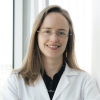Participating in a Clinical Trial Gave Me My Life Back: A Multiple Myeloma Survivor’s Story
Multiple myeloma survivor Cindy Brown shares what it was like being diagnosed with the disease, what her treatment experience was like, why she chose to participate in a clinical trial, and how that decision helped give her hope.





